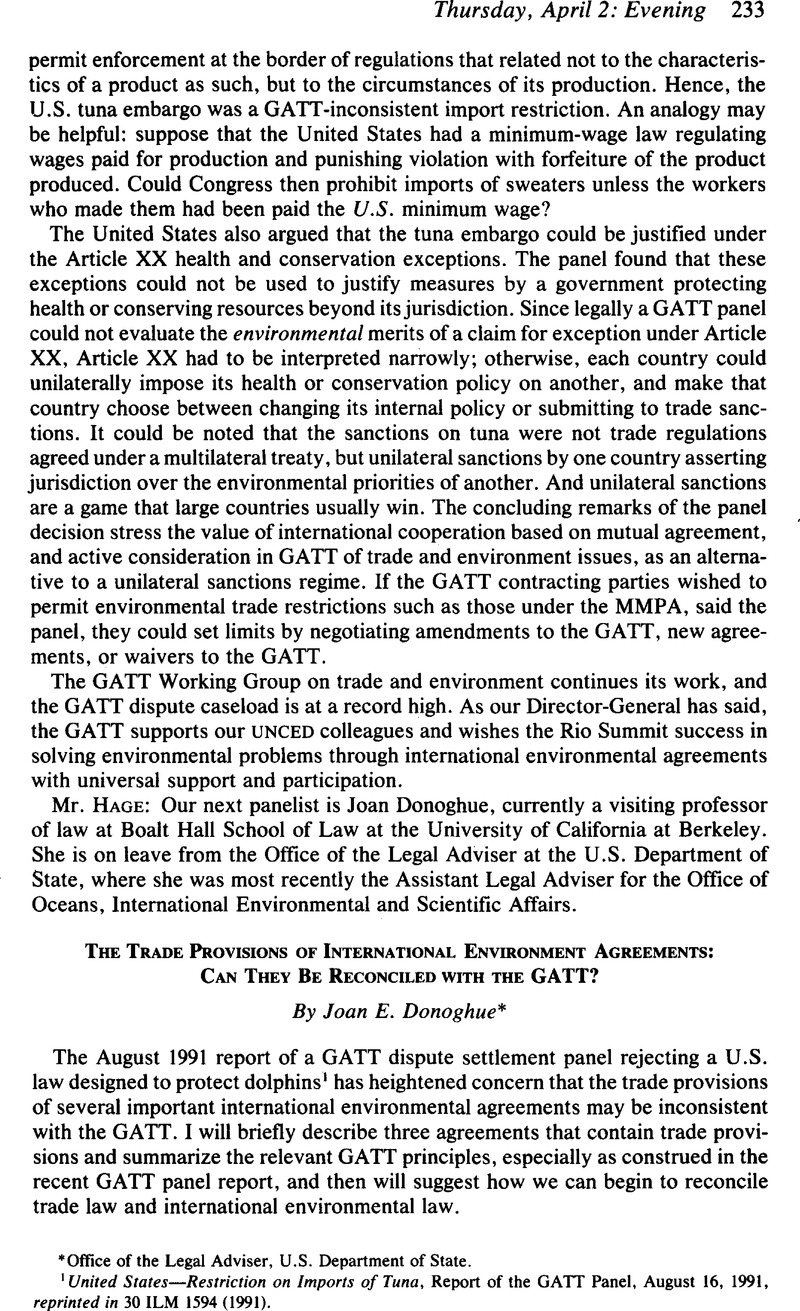No CrossRef data available.
Published online by Cambridge University Press: 28 February 2017

1 United States—Restriction on Imports of Tuna, Report of the GATT Panel, August 16, 1991, reprinted in 30 ILM 1594 (1991).
2 Convention on International Trade in Endangered Species of Wild Fauna and Flora, March 6, 1973, 27 UST 1087, TIAS No. 8249, 993 UNTS 243, reprinted in 12 ILM 1085.
3 26 ILM 1550 (1987). In 1990, the parties to the Montreal Protocol adopted the “London amendments,” which, inter alia, strengthened the nonparty trade provisions. See Report of the Second Meeting of the Parties to the Montreal Protocol on Substances that Deplete the Ozone Layer, UN Environment Programme, UN Doc. EP/OzL.Pro.2/3 (1990). Those amendments have not yet entered into force.
4 28 ILM 649 (1989).
5 Article X provides: "Where export or re-export is to, or import is from, a State not a party to the present Convention, comparable documentation issued by the competent authorities in that State which substantially conforms with the requirements of the present Convention for permits and certificates may be accepted in lieu thereof by any Party." Although this provision does not expressly prohibit trade in the absence of comparable documentation, it has been interpreted as a ban on trade with nonparties that can be overcome by comparable documentation. See Michael J. Glennon, Has International Law Failed the Elephant? 84 AJIL 1, 12 (1990), and SIIMON LYSTER, INTERNATIONAL WILDLIFE LAW 256 (1985).
6 Art. 4(5); Art. 11.
7 Art. 4(8). The Montreal Protocol also potentially bans trade in products containing controlled substances, Art. 4(3), 4(4), and calls for determination “of the feasibility” of controlling trade in products produced with controlled substances. Art. 4(4).
8 Thailand—Restrictions on Importation of and Internal Taxes on Cigarettes, BISD 37S/200, adopted November 7, 1990, reprinted in 30 ILM 1122 (1991).
9 Under the London Amendments, the nonparty trade provisions would extend to a Montreal Protocol party that has not agreed to be bound by control measures with respect to a particular substance. Art. 4(9).
10 Art. XXV(5).
11 GATT Article XX(h) permits measures “undertaken in pursuance of obligations under any intergovernmental commodity agreement which conforms to criteria submitted to the Contracting Parties and not disapproved by them or which is itself so submitted and not so disapproved.”